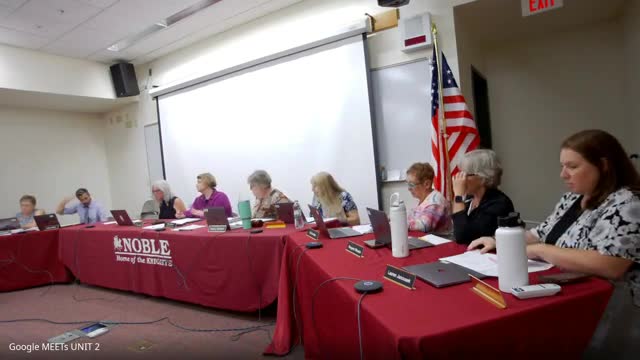School Board in Turmoil Over Executive Session Controversy
September 19, 2024 | RSU 60/MSAD 60, School Districts, Maine
This article was created by AI summarizing key points discussed. AI makes mistakes, so for full details and context, please refer to the video of the full meeting. Please report any errors so we can fix them. Report an error »

In a contentious school board meeting, members clashed over the authority to cancel a scheduled executive session, raising questions about procedural adherence and legal implications. The dispute began when a board member challenged the chairwoman's decision to dismiss the session, arguing that it violated a unanimous vote to convene. The chairwoman defended her ruling, citing legal advice that suggested proceeding could lead to potential human rights violations.
The discussion revealed deep divisions among board members regarding the interpretation of policies governing their authority. One member emphasized that board members only hold authority when acting collectively, while another pointed out that the chair has the power to manage executive sessions based on legal counsel. This led to a heated debate about whether the matter at hand warranted an executive session, with some members insisting it was essential to investigate serious allegations against the administration.
As tensions escalated, members expressed frustration over the perceived negation of their votes and the lack of clarity surrounding the issues being discussed. The chairwoman reiterated that the situation had been referred to the administration for appropriate handling, while others questioned the decision-making process and the role of legal counsel in guiding board actions.
Ultimately, the board faced a vote to uphold the chair's decision to cancel the executive session, highlighting the ongoing struggle to navigate governance and accountability within the district. The meeting underscored the complexities of board dynamics and the critical need for clear communication and adherence to established policies.
The discussion revealed deep divisions among board members regarding the interpretation of policies governing their authority. One member emphasized that board members only hold authority when acting collectively, while another pointed out that the chair has the power to manage executive sessions based on legal counsel. This led to a heated debate about whether the matter at hand warranted an executive session, with some members insisting it was essential to investigate serious allegations against the administration.
As tensions escalated, members expressed frustration over the perceived negation of their votes and the lack of clarity surrounding the issues being discussed. The chairwoman reiterated that the situation had been referred to the administration for appropriate handling, while others questioned the decision-making process and the role of legal counsel in guiding board actions.
Ultimately, the board faced a vote to uphold the chair's decision to cancel the executive session, highlighting the ongoing struggle to navigate governance and accountability within the district. The meeting underscored the complexities of board dynamics and the critical need for clear communication and adherence to established policies.
View full meeting
This article is based on a recent meeting—watch the full video and explore the complete transcript for deeper insights into the discussion.
View full meeting
